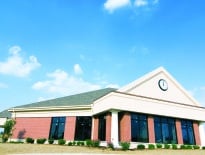While claiming to be undeterred by the prospect of a nearby tribal casino paying zero taxes, casino developer Neil Bluhm wants answers soon from the Gaming Commission about the viability of his plans for Brockton.
“We want to know that we’re not wasting our time,” said Bluhm, a real estate mogul and casino developer whose family-owned company plans to invest in, build and operate a casino on the Brockton Fairgrounds.
“I’ve spent over $3 million. I can afford it. But it’s time. Time is more valuable than money,” Bluhm said. “One of my partners says, ‘Neil, I think you’re nuts to hang in here,’ but I think it will be successful.”
Bluhm predicted that because of environmental remediation required at the proposed Wynn Everett casino and a highway construction project nearby MGM Springfield, his proposed Rush Street development on a former horse track should be the first casino to open in the state – finishing by the summer of 2018.
After plans for a New Bedford casino failed to attract financing, Rush Street is the only remaining commercial casino proposed for the southeast region.
The Mashpee Wampanoag Tribe is seeking federal approval to place land-in-trust, thereby allowing it to move ahead with a tribal casino in Taunton. Bluhm said awaiting final determination on the land-in-trust process that began in early 2013 could take several more years as a positive determination from the federal government could work its way through the courts.
The Gaming Commission Wednesday extended a comment period on Rush Street’s request for the commission to say whether it would award the license to Rush Street if it met the qualifications and was in the state’s interest regardless of how the tribe fares. The new deadline is Sept. 18.
If both Rush Street and the Mashpee built their casinos, the tribe would pay no gaming taxes under the terms of a compact with the state, while Rush Street would pay the state 25 percent of its gross gaming revenue. In the past the Gaming Commission has delayed its licensing process for the southeast while waiting to see the progress of the tribe’s application to the U.S. Department of the Interior.
Despite the clear tax advantage that would be enjoyed by the tribe, Bluhm said he is confident that his casino several miles north of Taunton on Route 24 would be a success because it is closer to the populous areas around Boston.
“We’ll still have a profitable casino,” Bluhm told the News Service in an interview in the offices of Rasky Baerlein on Wednesday evening. He said, “We would not be working on this if we thought that this wouldn’t succeed if there was also an Indian casino.”
Predicting litigation, potentially from local groups if the Mashpee tribe is granted land in trust, Bluhm declined to say whether his company might sue or potentially finance litigants.
“We’ll consider anything that makes economic sense,” Bluhm said, suggesting that the already licensed gaming establishments could potentially seek involvement in lawsuits. Bluhm also distinguished the current scenario with him and the Mashpee seeking to develop a casino from an either-or decision, saying, “The tribe will still have a casino even if we have one.”
From humble origins in Chicago, Bluhm received a scholarship to study law at Northwestern University and after working for a Chicago firm, he set out on his own in real estate and later gambling, starting with a government-owned casino in Ontario.
“I’m lucky starting from nothing,” said Bluhm, who said his privately held company has been involved in acquiring and developing $50 billion to $60 billion in property. He described his company as “the most successful regional casino developer since the Great Recession.”
Bluhm said he had been solicited on a casino bid in Fall River and to partner with the New Bedford waterfront casino proposal, which brought in Foxwoods as casino operator but failed to find financing.
Bluhm said he was uninterested in the South Coast proposals because they lack a population base to support casinos, though he had been interested in potentially developing a site in Bridgewater before settling on Brockton, which is within a 45-minute drive of 2.4 million people, according to his analysis.
Analysis by The Innovation Group, a major gaming consultant, showed Bluhm that his casino would take in $404 million in gaming revenue, a number that would be diminished to about $330 million if the Mashpee build a casino. That same analysis found Wynn would make $770 million, taking a 10-percent hit if Rush Street builds and the Plainridge Park Casino, a slots parlor in Plainville, would take a roughly 15 percent hit if Rush Street opens.
Bluhm said the state would make about $70 million in gambling taxes if Rush Street opens and would make about $40 million in gambling taxes – exclusively from Rush Street – if the proposed Brockton and Taunton casinos open.




 |
| 

